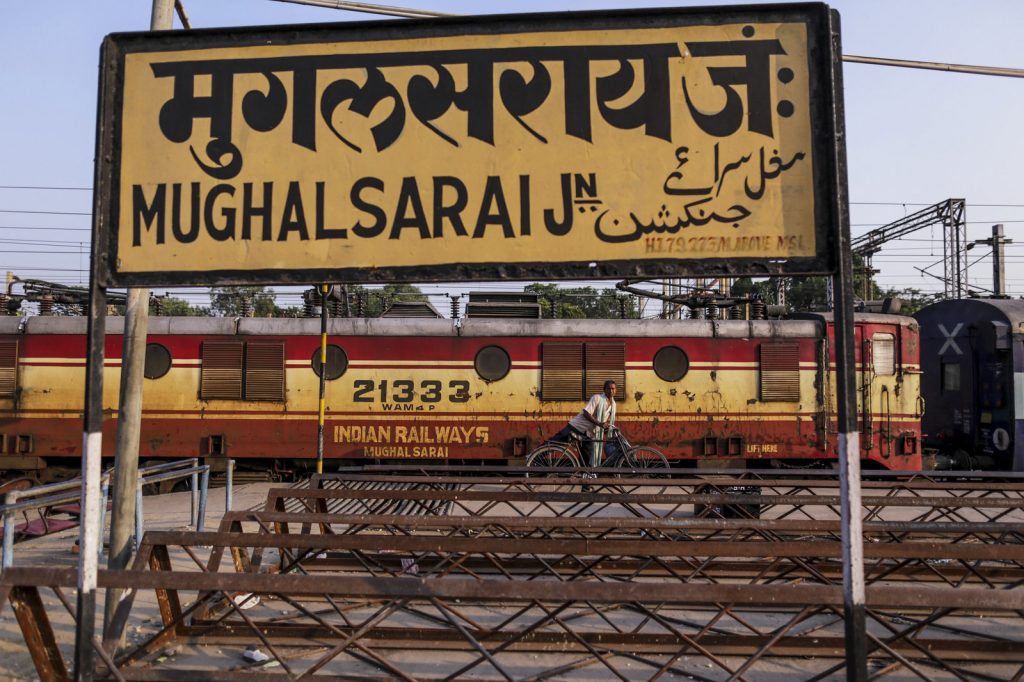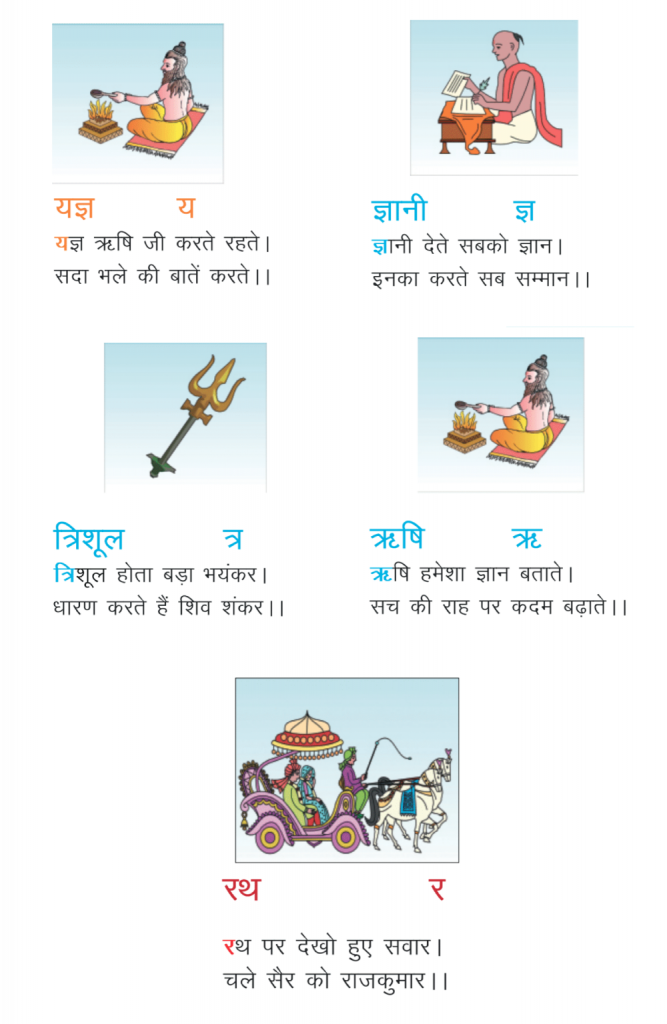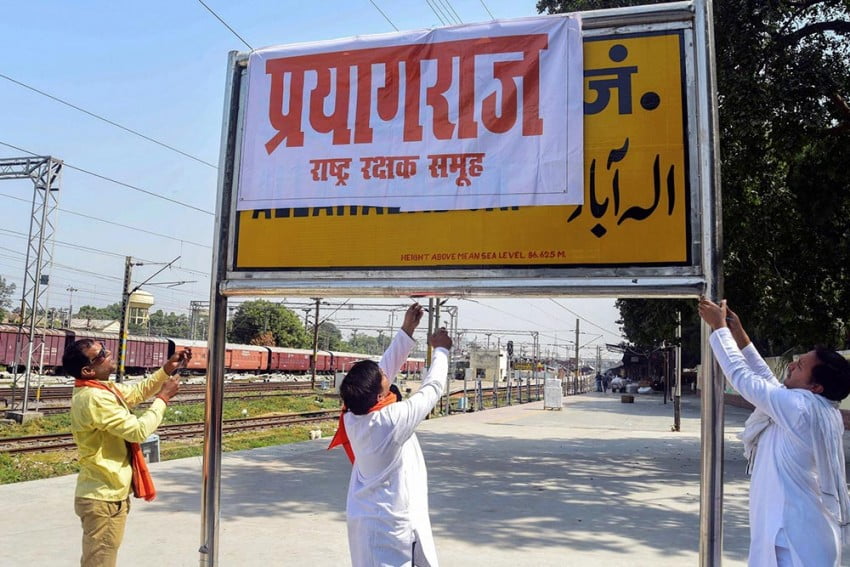In today’s world, the fascist ideology is markedly different from the fascist leaders of the past century. It aims to transform democratic systems from within, to become a state within a state. And the building blocks to achieve that is to rewrite history. Our country, in contemporary times, is an example for the same. The ruling party, BJP, is actively renaming cities and altering history in textbooks from the school curriculum.
Gurmeet arrives in Ajmer on a crowded train. His friend Razzak picks him up and takes him to the dargah of Moinuddin Chisti, where he describes the festival of Urs held annually at the shrine. At Adhai din ka jhopda, the two friends discuss whether the monument could indeed have been built within two-and-a-half days, as its name suggests. Next, they go to Taragarh Fort, where they see the memorial to the Rajput king Prithviraj Chauhan. By the time they wrap up the visit to Ana Sagar lake, they are too tired to go anywhere else.
This is “Ajmer ki Sair”, a story of two boys sightseeing in the city of Ajmer, which Class 3 students in Rajasthan read in their Hindi textbooks until 2016. In July that year, the state introduced new school textbooks in all classes.
The new Hindi textbook for Class 3 still features the story of the two boys. Gurmeet still arrives on a crowded train. Razzak still lives close to the dargah. They still tour Ajmer. But the Urs is no longer described in detail. Prithviraj Chauhan is called the king “who defeated Bharat’s invader, Mohammad Ghori several times”. The tour spills over into the Hindu pilgrimage town of Pushkar, where Razzak shows Gurmeet the “world famous” Brahma temple and the Panchkund or five reservoirs “that the five Pandavas had built” – a reference to the heroes of the epic Mahabharata. From “Ajmer ki Sair”, the story has been renamed “Ajmer ki Yatra”.
Retain this finding by Scroll at the back of your mind, while we discuss the root cause of rewriting history.
Why Is Rewriting History Important To Build Fascism?
In January 2017, a group of Indian scholars gathered in a white bungalow on a leafy boulevard in central New Delhi as instructed by the leaders of the Hindu nationalist party, BJP. They discussed ‘How to rewrite the history of the nation.‘ In six months, the government of Prime Minister Narendra Modi, affiliated to BJP, appointed a committee for the same.
India, which was built to be a secular, multi-faith country, seven decades after its Independence, it is being ground by political campaigns that seek to reinvent the idea of India itself.
Culture Minister Sharma told Reuters that he expects the conclusions of the committee to find their way into school textbooks and academic research. The panel is referred to in government documents as the committee for “holistic study of origin and evolution of Indian culture since 12,000 years before present and its interface with other cultures of the world.” Similarly, in 2014, Modi said India is troubled by “1200 years of slave mentality”, clearly lumping together the 200 years of British colonial rule and the preceding medieval Muslim era as a long and undivided period of colonial suffering.

Image Source: NRP
Historian Romila Thapar, 88, says, “The question of who first stood on the soil was important to nationalists because if the Hindus are to have primacy as citizens in a Hindu Rashtra (kingdom), their foundational religion cannot be an imported one.” Thapar, further adds, “…to assert that primacy, nationalists need to claim descent from ancestors and a religion that were indigenous.” India, which was built to be a secular, multi-faith country, seven decades after its Independence, it is being ground by political campaigns that seek to reinvent the idea of India itself.
Changing History to Next Generation of Learners
According to The Indian Express, between 2014 and 2018 1,334 changes were made to 182 textbooks put out by the NCERT between 2005 and 2009. The revision of history is fueled with a mission: to blur the lines between history and mythology. Y Sudershan Rao, head of Indian Council of Historical Research, believes that historiographic research should focus on identifying the locations where the “events” described in the epics took place.
The banned practice of Sati is described in glowing terms, as are government schemes and initiatives. Textbooks of all classes reinforce gender stereotypes, omit minority identities—Muslims, Christians and others, promote Hindu majoritarian perspective, instil nationalism and unquestioning respect for the armed forces.
Going back to the snippet of change of “Ajmer ki Sair” to “Ajmer ki Yatra”, the revised version of textbooks in Rajasthan reinforce Hindu identities while erasing minorities. The banned practice of Sati is described in glowing terms, as are government schemes and initiatives. Textbooks of all classes reinforce gender stereotypes, omit minority identities—Muslims, Christians and others, promote Hindu majoritarian perspective, instill nationalism and unquestioning respect for the armed forces.

Science is explained through stories from Indian mythology and every maths textbook from Class 3 to 8 has a chapter on Vedic maths. The lesson flowers in the science textbook of Class 4, links lotus to the Hindu goddess, Saraswati. A Class 6 geography lesson on the cosmos, while referring to the Pole Star, includes a story on the Dhruva Tara from Hindu religious scriptures.
The most disheartening of them of all is the Class 3 textbook which has 15 lessons out of which 7 condition children that are likely to be swayed to do wrong and are in need to be taught morals through a hammering of the ‘right behaviour’ instilling the mindset to surrender.
Also read: BJP And Feminism: How Has BJP Been Treating Indian Women?
Changing Landmarks
While changing the names of cities is not new—Bombay became Mumbai; Madras, Chennai; Calcutta, Kolkata; Bangalore, Bengaluru—the reasons were extensively different. Then, it was about rejecting of anglicized names that came into use during British colonial rule, now, it’s about erasing Muslim names.
August 2018, the historic Mughalsarai Junction Railway Station in the state of Uttar Pradesh was renamed to Deendayal Upadhyaya after the right-wing Hindu leader of Rashtriya Swayamsevak Sangh (RSS). In 2015, Aurangzeb Road in New Delhi was changed to A P J Abdul Kalam Road. In 2016, Haryana renamed the city of Gurgaon as Gurugram, after Guru Dronacharya, an upper-caste Hindu figure from the epic Mahabharata. The proposal to rename airports in the towns of Bareilly, Kanpur, and Agra are in the cards.

Image Source: Outlook India
The latest is the renaming of Allahabad to Prayagraj which was done by the Chief Minister of Uttar Pradesh, Yogi Adityanath (BJP) who also renamed the district of Faizabad as Ayodhya. If the demanding Hindu nationalists have their way, Ahmedabad will be renamed Karnavati, Agra will be called Agrawal, Patna will be Patliputra and Pune will go by the name of Jijapur after Chhatrapati Shivaji Maharaj’s mother Jijabai. Shiv Sena wants the names of Aurangabad, Osmanabad and Khultabad in Marathwada region to be renamed as Sambhaji Nagar, Dharashiv and Ratnaprabha, respectively.
Masking Secularism
“As rationalists, we are dismissed because we are told, ‘You’re not people of faith. You don’t understand,’ Now the question is, is politics going to be run by people of faith?” asks Thapar.
In 1947, when India won its freedom from British colonial rule, Gandhi and Nehru concluded that only a pluralistic democracy could hold together India’s myriad ethnic groups, languages and castes. Although, renaming of places is not an act exclusive to India or the BJP but the reason cited by the government is superficial: to reclaim Indian culture. The undeniable layered motive to alter the path of history is two:
1. Change India’s cultural landscape.
2. Consolidate the Hindu vote.
Also read: Two Women Evicted In Delhi For Challenging BJP’s Fragile Masculinity
In T J S George’s words, “Rewriting history is a continuous process. George Orwell had seen this before Amit Shah was born. His book 1984 (written in 1948) presented the picture of a polity in which all citizens were manipulated by a single party. The philosophy was: Who controls the present controls the past and the future. In 1948, that sounded like a novelist’s paranoia. In 2019, it was found to be Bharat’s glory. Rewriting of history is pure patriotism.”
Toxic patriotism.
References
Aljazeera
NRP
Reuters
Outlook India
Featured Image Source: Outlook India
About the author(s)
Nivedita Jayakumar is a Computer Science engineer who is now doing her Master's in Communication and Media.




